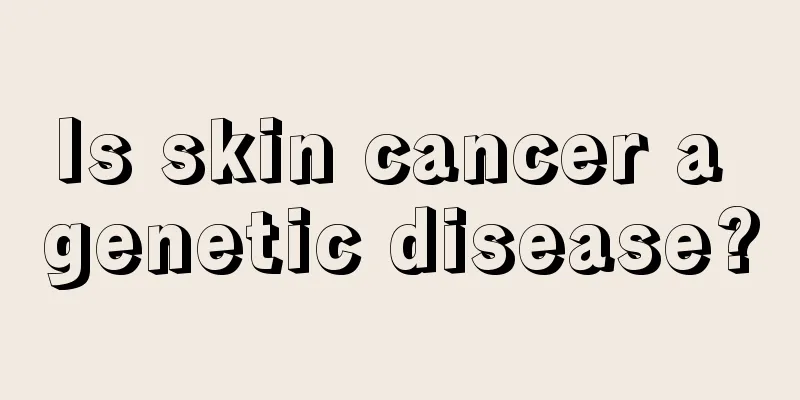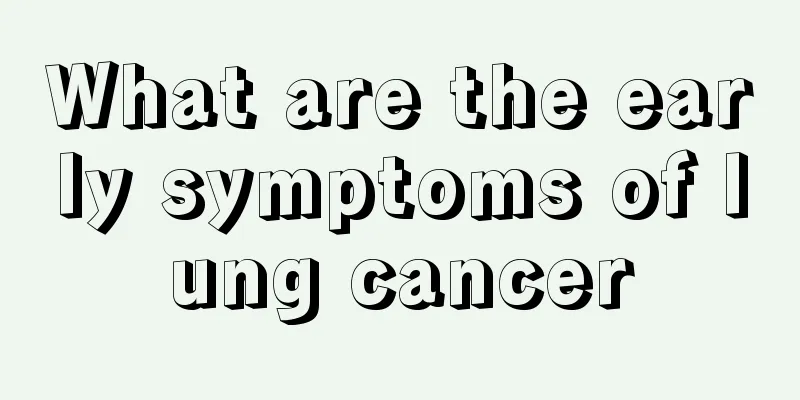What are the causes of gastric cancer

|
With the development of society, the pace of life has accelerated, and people's quality of life has declined greatly, making it difficult to resist the invasion of viruses. Gastric cancer is a disease with high morbidity and mortality rates all over the world. So why do people get this disease? What is the cause? Let's see what the experts say. 1. Dietary factors: Diet is closely related to the incidence of gastric cancer, which can be said to be an undisputed point in the etiology of gastric cancer. In recent years, the incidence of gastric cancer in developed countries in Europe and the United States has been on a downward trend, which is mainly related to dietary factors. Its characteristics are: in the past, food was preserved by smoking (smoked fish, smoked meat) and salting, and the food contained a relatively high level of carcinogens, such as benzopyrene, nitrosamines, etc., and high concentrations of salt are considered to be carcinogenic substances. Food fried in high-temperature oil also contains a certain amount of polycyclic aromatic hydrocarbons. In Japan, talcum powder is often used to treat rice, and talcum powder contains carcinogenic asbestos fibers. High-salt foods such as pickled meat, pickled fish, pickled poultry, pickles, bacon, and sausages have also received attention, because high-salt foods can damage the gastric mucosa and make carcinogens easily absorbed by the body. A survey in Henan Province, my country showed that salt consumption was significantly positively correlated with gastric cancer mortality. 2. Chemical substances such as nitrosamines: At present, through experiments, it has been found that a variety of nitrosamine compounds with different structures can cause gastric cancer in animals. Investigations in areas with a high incidence of gastric cancer have found that the content of nitrates and nitrites in drinking water and food is significantly higher than that in areas with a low incidence. Under the conditions of suitable pH values or the action of bacteria, nitrates and nitrites can synthesize carcinogenic nitrosamine compounds in the human stomach. Some pickled meats, fish, poultry, vegetable foods, and foods treated with nitrites such as sausages, ham, luncheon meats and pickled meat products also contain a small amount of nitrosamine carcinogens. In addition, there are reports that some cheeses, milk, flour, beer and other alcoholic beverages at home and abroad can also be detected. Nitroso compounds are used as solvents, lubricants, rust inhibitors, etc. in industry, and as pesticides, herbicides, etc. in agriculture, and can be exposed occupationally. 3. Mycotoxins: Epidemiological investigations have found that mold contamination of grain and food in areas with a high incidence of gastric cancer in my country is quite serious. The detection rate of mold and its toxins in fasting gastric fluid of patients with chronic gastric disease in high-incidence areas is significantly higher than that in areas with a low incidence of gastric cancer. Aspergillus versicolor, Aspergillus flavus, Aspergillus nidulans and other molds have been detected in gastric fluid, and the versicolor toxins and aflatoxins produced by them can induce gastric cancer in rats. 4. Smoking and drinking: The incidence of gastric cancer in long-term smokers is significantly increased. The longer the smoking period, the more gastric cancer is likely to occur. Smoking has carcinogenic and cancer-promoting effects on the stomach. Long-term drinking has a synergistic and cancer-promoting effect with other factors that cause gastric cancer. 5. Helicobacter pylori (HP) infection: Infection with Helicobacter pylori in the stomach is one of the important factors for the occurrence of gastric cancer. The World Health Organization has classified Helicobacter pylori as a primary carcinogen for human gastric cancer. The difference in the strains of HP bacteria can lead to differences in the occurrence of gastric cancer. In 1994, Forman of the United Kingdom believed that 35% of gastric cancer cases in developed countries and 85% of gastric cancer cases in developing countries were related to HP infection. Some scholars believe that HP infection may be a synergistic carcinogenic factor for gastric cancer. 6. Genetic factors: Most retrospective surveys suggest that genetic factors play a more positive role in the etiology of gastric cancer, with a clear tendency to cluster in families. It is generally believed that the incidence of gastric cancer in relatives of gastric cancer patients is four times higher than that in the control group. 7. Chronic gastritis: Gastric cancer is closely related to chronic gastritis, especially atrophic gastritis. The incidence of this type of gastric cancer is related to the severity of atrophic gastritis and the length of medical history. Due to atrophic gastritis, the function and structure of the mucosa are abnormal, the free acid in gastric juice decreases, and the bacteria in gastric juice increase, which increases the synthesis of nitroso compounds. Nitroso compounds have been proven to cause gastric cancer. |
<<: Can stomach cancer cause jaundice?
>>: What are the factors that lead to gastric cancer?
Recommend
What are the examination items for cervical cancer? What should be paid attention to before the examination?
Cervical cancer screening items include human pap...
What foods can't be eaten by liver cancer patients? Liver cancer patients should avoid highly irritating foods
For liver cancer patients, they should avoid high...
Gastric cancer is preventable
Shan Tianfang, a master of storytelling, has brou...
The correct way to apply eggs to eyes
Generally we all know that applying eggs to the e...
What are the dietary requirements for confirmed liver cancer? Revealing some suggestions for liver cancer dietary care
What are the requirements for liver cancer diet? ...
What are the complications of lymphoma
Lymphoma is a common disease in life. Patients wi...
What is the correct eye massage method
I believe many of my friends have had such an exp...
What is the difference between stomach cold and stomach heat
How to judge whether your stomach pain is caused ...
Is there any self-treatment for abdominal adhesion
Abdominal adhesions are not unfamiliar to many pe...
Folk remedies for treating psoriasis, small folk remedies to treat serious diseases
There are many folk remedies for treating psorias...
Which hospital should I go to for ovarian cancer examination
With the rapid spread of media, the popularizatio...
Why does water come out of the ears after radiotherapy for nasopharyngeal carcinoma? What are the complications?
Why does water come out of the ears after radioth...
Should I apply ice or heat to my eye bags?
As women age, they experience sagging skin around...
The muscles in my right arm keep twitching
When our arms exert force, the muscle groups will...
Is it good to soak your feet in cold water in summer?
The weather is relatively hot in summer, so many ...









